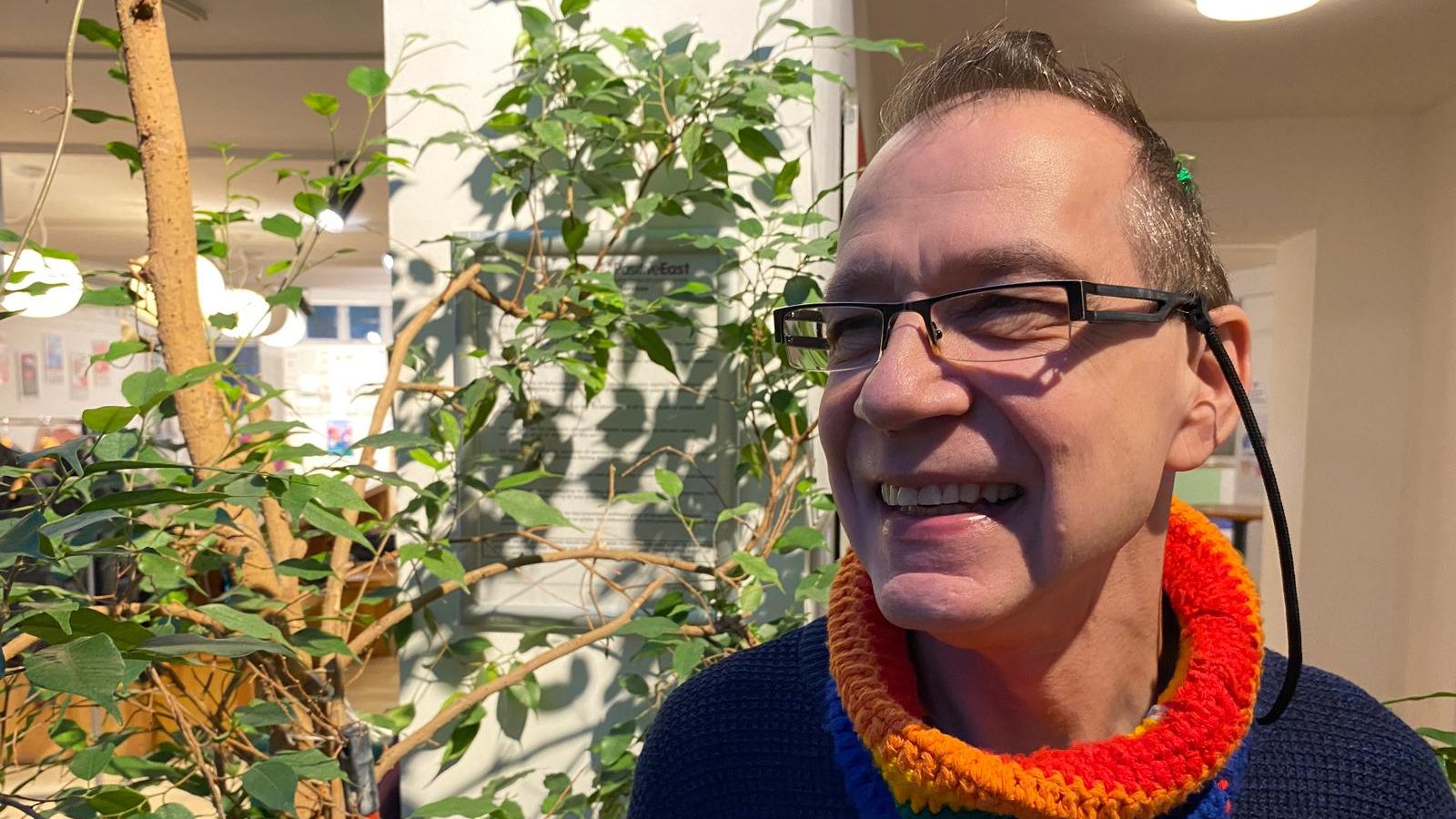When Peter Bodnar was diagnosed with HIV, his family told him to leave the house and not come back.
“I never saw my nieces or nephews again – they’ve not spoken to me since,” the now 65 year old says.
He fell into depression, living off takeaway meals, and whatever cheap food he could afford.
“I ate the cheapest thing I could, every day, no nutrition at all,” he says.
At his lowest, he weighed 50kg (7st 12lb) and was told by the doctor he drastically needed to change his diet. Even though he had been diagnosed with the virus in 1994, it took him over 25 years to reach out to any HIV charities for support.
Then he made contact with the Food Chain.
Established in 1988 when it delivered its first meal on Christmas Day, the Food Chain provides vital support for people living with HIV in London, educating them about the vital role nutrition plays in fighting the disease.
Sir Elton John to MPs: Next election winner can help eradicate AIDS by 2030
First new HIV awareness advert in 40 years to air on TV in Scotland
David Furnish condemns ‘homophobia’ in Schofield coverage and hints at husband Elton John’s last UK show
It has three main services including Eating Together where they serve a twice-weekly meal to members of the community alongside a talk about nutrition, cookery classes and grocery deliveries.
For people living with HIV, what food they eat is particularly crucial because some medications need to be taken with food, others need to have a meal that has a certain make up, such as 40% carbohydrates.
But as food inflation has soared over the last year, healthy eating has become increasingly difficult.
“Poverty used to be just one of the situations people would be experiencing,” says Anna Brewster, the charity’s director of services and engagement.
“Other times it would just be a lack of knowledge or engagement with nutrition.
“But now poverty is affecting every single person who comes to us.”
A new stigma
Breakthroughs in HIV medication mean the virus can now be reduced to undetectable levels – referred to as U=U (undetectable = untransmissible). This means the person who has it cannot pass it on because the viral load is so small.
If everyone were able to attain U=U, it would mean new transmissions of the virus would eventually die out completely – something London is aiming to achieve by 2030.
And among the HIV community, this is seen as the ideal outcome for anyone who has the disease.
“But the whole theory makes a presumption that everyone has the ability to attain undetectable status,” Anna says.
“But if you’re living in poverty, you don’t have food in your cupboards, if you’re in a domestically violent relationship, an asylum seeker or homeless you can’t take your medication effectively and you’re not going to reach that undetectable viral load.”
And for those people who can’t, she says there is now a “new kind of stigma”.
“Because people are wondering why, we’ve got all the drugs and we’ve got all the abilities to be undetectable, so why are you don’t undetectable?”
And in a community with a long history of personal guilt, she says: “It’s the same set of prejudices coming into the conversation now, around this is your fault you’re not undetectable.”
The Food Chain has also found it harder to provide grocery deliveries that contain everything someone needs: “We’ve got lots of tips and tricks, we know all the best ways to find deals. But it’s become increasingly difficult to make that £50 stretch.”
Referrals from the NHS
Some 70% of the charity’s referrals come directly from the NHS.
“When you have someone in Peter’s situation, and they’re told ‘You need to change your diet’, it’s like, okay but how?” Anna says.
Be the first to get Breaking News
Install the Sky News app for free
The Food Chain hopes it can help provide that answer, with a team of HIV nutritionists on hand to help.
For Peter, it has been life-changing: “I’m a single gay male living with HIV and now thriving and not worrying about it in 2023.”
And while he still hasn’t heard from his family, he says: “I get a Christmas card from the Food Chain every year – so that’s good.”








